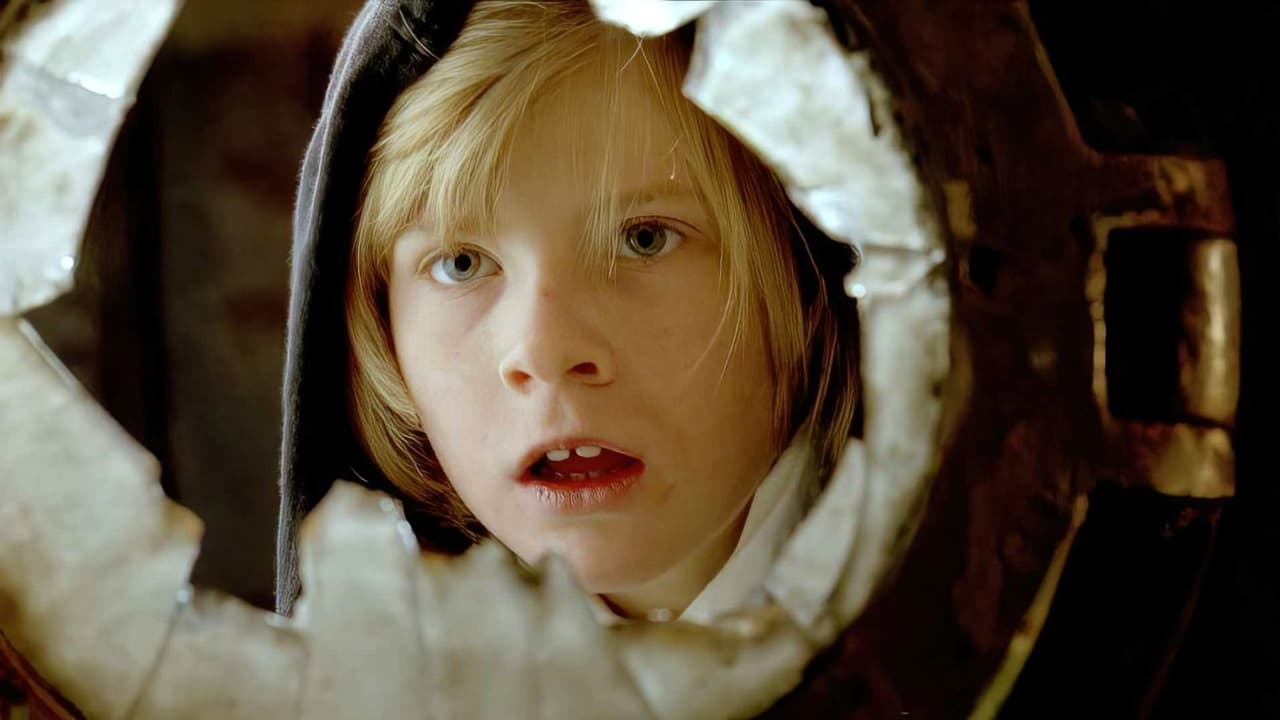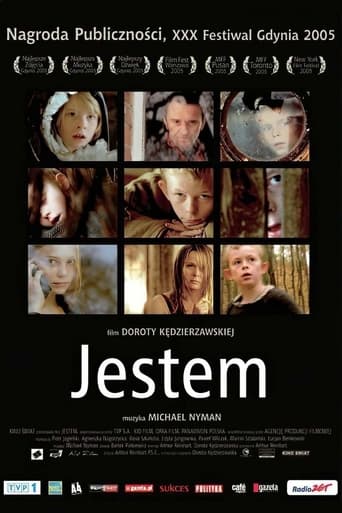

A surprisingly good movie made in Poland, country that I usually don't include in upper half of European production (unlike neighbor Czech movies that have been among the best for five decades).Jestem tells a story about a boy that runs away from orphanage. He is not a real orphan, we soon understand that he has a mother, but a kind of mother that he could better be without. However, as children usually do, he believes that biological parents are the best ones, like adopted children desperately looking for their biological parents who abused, neglected and/or abandoned them once they realize that the loving family they belong to isn't the one they have been born into; and just like most of them Kundel, the hero of Jestem, meets one more disappointment. His mother again (repeatedly) rejects him because she finds him an obstruction in forming (one more) relation to a man that abuses her, but the same way as Kundel can't believe the truth about his mother she doesn't want to believe the truth about this man, like so many men before. Both Kundel and his mother are tied to the same town, same neighborhood – he runs there back from the orphanage and she has never left it – and their history is their curse, it is chasing them but they, unable to accept the sad truth, keep being its victim.So Kundel meets people who already know him from before, and know his mother, and have old prejudices (though, as people are different in reality, some of them act friendly and indeed try to help him, but nobody can really improve his situation). His biggest problem are the kids who also know him, and they are as cruel as children (raised by adults and preparing to become ones) can be. The only kid he can friendly relate to is Kulaczka, a girl a bit younger than him, whose parents own the land where he found an old boat as a shelter. This family seems to be a bit maladjusted as well - parents know but don't care much for a boy living practically in their garden; however, they seem not to care much for their daughters either.Jestem reminds us on Scandinavian movies whose authors keep the unreachable standards in presenting realistic picture of children. But unlike mostly optimistic approach these north-European directors have leading usually to happy-end (though sometimes not as artificially sugared like American happy-ends) the mood of Jestem is by far more like dark British stories from e.g. Loach, Anderson, Ramsay. If not so, for thematic aspects, feelings and circumstances and even the age of the kids Jestem could have been made by Danish movie magician Søren Kragh-Jakobsen (Skyggen af Emma, or Island on Bird Street that even takes place in Poland). However, Dorota Kedzierzawska, otherwise completely unknown to me, appears to be a very competent director combining beautiful poetic moments and harsh reality, bleak post-communist small town (looking almost like those British towns strangled by mines, wharfs and factories in movies mentioned above) and peaceful nature, boys hope and despair that dissolve and overlap during his stay in his home town.In fact, sometimes it isn't easy to say what happy-end is. The end of Jestem is not an end of Greek tragedy, in fact nobody dies at all. But staying alive doesn't automatically mean brighter future. So, like in Malle's Pretty Baby where some critics asked what would real happy-end for Violet be – life in brothel that she knew and was used to (but impossible, as it was closed), life in marriage with a photographer (who was unable to understand and handle her as a child) or life with her mother prostitute (who raised her to go her paths but when she got married decided to take Violet with her, yet we don't know how much she has changed and what are her grooms motives, including towards Violet) - we can't say if other possible destinies would be a happier end for Kundel, or even the worse ones.Definitely, a movie to watch and to think about. To wait for next chance to see what Kedzierzawska will do in future. And maybe, maybe, if you see some Kundel in some dark corner of your own town
... View MoreThis film carries the same spirit and almost the same story as "Nobody Knows" (Daremo Shiranai) by Hirokazu Kore-Eda. It is truthfully told without resorting to feel-good plot twists, and earns its laughs and tears honestly. If anything, it continually points the viewer to the underlying rottenness of anything or anybody superficially attractive. Children's laughter is stained either with cruelty, substance abuse or deep sorrow. The adults are either mean and domineering, self-absorbed, or kind but powerless to help. There's only an ineffectual hint of adult protectiveness of a throw-away child, and even the police respond with annoyance rather than genuine concern for the welfare of the 11-year-old boy who is at the center of this story.Unlike other reviewers, I don't think this movie is too pretty. It's mostly dark and grimy. Even scenes at the water's edge and in the woods are dotted with refuse, which the kid harvests for useful items and things he can sell. I got the sense that any residual beauty that this child perceives is what keeps him from committing suicide or joining the other lost boys getting high on inhalants. His ambition is to be a poet. I took the visuals to be his poet's-eye view of his hard-scrabble life.He's Pinocchio made flesh with no Geppetto or Jiminy Cricket in sight. As with the kids in "Nobody Knows," his ultimate fate remains un-foretold. Both movies left me in tears. I was surprised to see this aired on MHz Worldview's excellent film series, "For the Family." I wouldn't let children watch this without a trusted adult also watching. In that sense, it is a family movie, not boob-tube babysitting fare.
... View MoreOn a chilly night, across the world in Warsaw, Poland, I had the privilege of attending the closing gala of the Warsaw International Film Festival. It was a red carpet event, with the director and stars there, and a great opportunity to mingle with them.The film was called 'Jestem' (in English it means 'I am'), and it was a Polish film directed by Dorota Kedzierzawska. It starred Piotr Jagielski and Agnieszka Nagórzycka, with Pawel Wilczak.Before watching the movie, we heard a summary of the successful festival from the directors of the festival and a brief statement from the film's director herself, in front.The lights dimmed, and the movie began.The film is the story of a boy searching for his place in life, his identity. After running away from an orphanage and being rejected by his mother, the resolute 11-year-old finds a "home" on a deserted old barge. I think it came out well. I enjoyed the film, and thought the young actor in the main role did a fine job.Worth seeing in my opinion.
... View MoreFamiliar theme: a child in need of loving or at least caring parents. The location happens to be North Poland, I so guess. For me that's a big plus, keeps me in front of the screen whatever happens, memories and all that, you know. The 'whatever' should be stressed, for at first one could think this is going to be just another 'problem parents film' designed for festival success, but while there is this doubt almost continuously as the plot is setting off, the film will somehow manage to survive. Partly to do at that point with the very well-done cinematography, I suppose. Images filtered brownish, give a comforting warmth to the viewer. Then suddenly one is rewarded for staying with the film and might find unlikely peace together with the young main character who finds it while trying to escape both the ugly peers in whom he sees rottenness he certainly doesn't want to socialize with and the state institutions that would like to step in as replacement for the parents he needs, no matter if he wants any of their 'care'. The ending might bring back all the doubts, but it's just that kind of film. Still worth watching, no doubt about that.
... View More